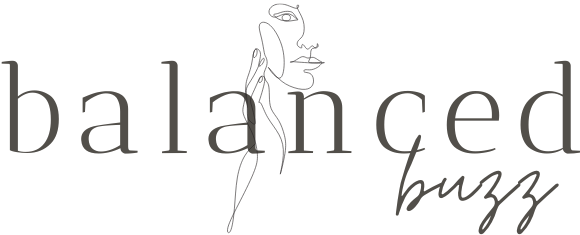What’s in My Tampon? 6 Non-Toxic Feminine Care Brands To Try
This post contains affiliate links
Have you ever wondered what is used to make our tampons and pads? If you take a look at the label on most boxes, it won’t give you a ton of information because they aren’t required to disclose that information…so you would assume they just use cotton right?
Unfortunately, that’s not the case. Conventional tampons and pads are made with GMO cotton that is often sprayed with pesticides and then bleached before reaching the shelves. They also usually contain other additives such as micro plastics and fragrance....to make our vaginas smell like flowers?? The tissue in and around your vagina is extremely sensitive and absorptive, making absorption of these compounds into your blood stream easy. One study showed that the exposure and absorption of phthalates, Parabens, Bisphenols, and triclocarban via pads, panty liners, and tampons was significant. And many of these ingredients can cause worsened PMS for women. What’s a girl to do? Besides demanding more transparency from the companies producing these grossly toxic products we can choose safer options for ourselves.
In this post, I will cover:
What kinds of chemicals are found in your everyday pads/tampons
What to look for in the future
Brands to watch out for
6 brands that offer the consumer transparency and use safer ingredients in their product
What kinds of chemicals are used in everyday pads/tampons
Pesticides: Most products do not use organic cotton, which is the only way to be sure that you are getting pesticide-free cotton. Pesticides have been linked to some cancers and is a potential endocrine disruptor.
Polyester: Plastic, nuff said
BPA/Bisphenols: Plastic chemicals that aren’t biodegradable and have been linked to endocrine disrupting and certain cancers
Paraffin and Polyethylene: often tampons are coated with these substances to make insertion and removal easier
Fragrance: Fragrance is an umbrella term for over 3000 ingredients that do not have to be disclosed to the consumer. Included in this list are chemicals known to be endocrine disruptors, possible carcinogens, and allergens.
Superabsorbent Polymers (SAPs): These are what gives your feminine care products the ability to absorb exorbitant amounts of liquid. The issue with SAPs is that they are typically not biodegradable and when manufactured often contain acrylic acid which can have adverse health effects.
What to look for in a safe feminine hygiene products?
100% organic cotton and natural materials
Unbleached cotton (especially if it’s bleached using chlorine)
Free of synthetics, dyes, fragrances, SAPs, and chlorine
Avoid “antimicrobial” or “antibacterial”
Brands to be cautious of
Unfortunately, the main offenders are the ones that are the easiest to find on the shelves. They include companies like Playtex, Tampax, Always, U by Kotex, Up&Up, Poise, and Carefree who use GMO cotton and include harmful additives.
Then there are companies that use 100% organic cotton, but also use miciroplastics and other harmful ingredients. This includes companies such as: Cora, L, and Seventh Generation.
Recommended Brands
Natracare: Natracare uses organic cotton and are plastic/chlorine/fragrance-free. Can be found at Fresh Thyme, Sprouts, Natural Grocers, Kroger, Whole Foods, Fred Meyer, and Wegmans as well as online at amazon and iherb. Check out their store locator here.
Top: This woman owned company’s mission is to get organic, eco-friendly tampons and pads to every woman on the planet. 100% organic cotton, no synthetic fragrance or dyes, hypoallergenic, and eco-friendly. They can be found in select stores nationwide, so be sure to check out their store locator. Or you can purchase online and use coupon code BalancedBuzz for 25% off!
Lola: Made with 100% organic cotton and without synthetic fibers, fragrance, dyes, SAP’s, deodorant, or chlorine.
Oi: Women own and run. 100% certified organic cotton and nothing else. No synthetics, chlorine bleach, dyes, or fragrance.
Holy Sponge: Organic sea sponges are a sustainable option for feminine care product. They are grown organically in the wild, can be reused, and can be composted.
Rael: I am only recommending their reusable pads and tampons, because while they do use certified organic cotton their disposable pads are made with SAP’s and the backing has polyethylene and polypropylene. However, the reusable ones, while there are no PFA’s or harsh chemicals, the backing layer on it is 99% organic cotton, 1% polyurethane. And the tampons string has a repellent wax, so I will leave that up to you. If you aren’t comfortable with it, there are still some great options listed above!
Hopefully you are able to find some brands that works for you in the list provided! It can be really frustrating to feel “duped” by companies, especially ones that claim to be all natural. I used to use Cora and L before doing more research into their ingredients. Leave any questions or thoughts in the comments down below and as always, thanks for stopping for for a little balanced buzz!






